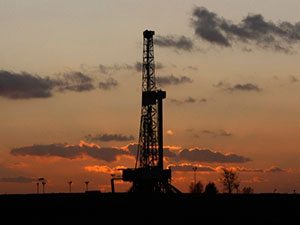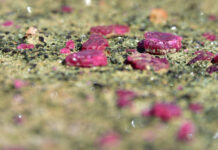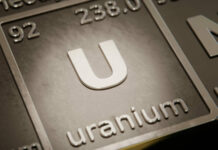
[miningmx.com] – EXPECT the debate about clean energy to resume this year after President Jacob Zuma effectively wrote the exploration for shale gas in South Africa’s picturesque Karoo into his party’s election manifesto.
“The pace of oil and gas exploration, including shale gas exploration by the state and other players in the industry, will be intensified,’ the manifesto reads. This will be music to the ears of companies waiting on exploration permits.
Anglo-Dutch oil giant, Shell, is the main player in the region whilst junior Falcon concessioned a stake in its property to Chevron. The other player is the little-known Challenger Energy, an Australian-listed company but with an interesting empowerment partner in the form of Don Ncube.
Ncube, largely known for chairing SAA and running Real Africa Holdings, is not new to the energy industry. He has served as chairman of the Atomic Energy Corporation, and is currently non-executive chairman of Badimo Gas. His involvement in Challenger Energy is as a 5% shareholder with the balance held by Challenger’s local subsidiary, Bundu Gas and Oil Exploration.
Bundu first secured its property in the Karoo – some 40 minutes drive from the historic but faded Eastern province town of Graaff-Reniet – in 2008. Given the South African government’s U-turn on shale gas, the company hopes drilling can start in a year with first production by 2020, hypothetically.
It’s hard to tell what’s riskier for Challenger, however. The technical risks are obvious. The one million acre property it has staked out was last drilled in the late Sixties. Robert Willes, MD of Challenger, says there was gas, but the data needs updating. The other risk is the wall of environmental opposition.
Bundu’s founder, Peter Price, who has worked for Anglo American in Zambia and Anglovaal Mining, the Menell family company, ran into local opposition in 2010 after local community members felt they hadn’t been properly consulted.
“The way they have mishandled this process has really p*ssed people off, to put it mildly,’ Kitty Viljoen told Farmer’s Weekly at the time. Viljoen was manager of AsanteSana Game Reserve which cover 12,000 hectares some 70km from Pearston where Challenger is hoping to drill. Dinosaur prints some 250 million years old are found there. It’s a very emotive discussion.
Willes, formerly head of business development for BP in Asia Pacific, looks to be a savvy customer, however. “We will engage with the community and do the right things. There will be an array of feelings about it including those who see jobs created from fracking,’ he says.
There’s no doubt shale gas offers South Africa enormous economic benefit. As outgoing Eskom CEO, Brian Dames, said in the past, it’s a game changer. Given that nuclear energy is, owing its cost and lead-time, likely to become less of a constituent in the country’s energy plan, shale gas looks the no-brainer.
Says Willes: “One trillion cubic foot (tcf) of natural gas is enough to heat 15 million homes for one year.’ It’s estimated the Karoo Basin contains 370 tcf.
For now, Challenger is a high risk play located in a distant market. Once permitting is made and exploration takes place, the company will need funds. Willes is open to accessing the capital markets in South Africa and a listing isn’t discounted.











